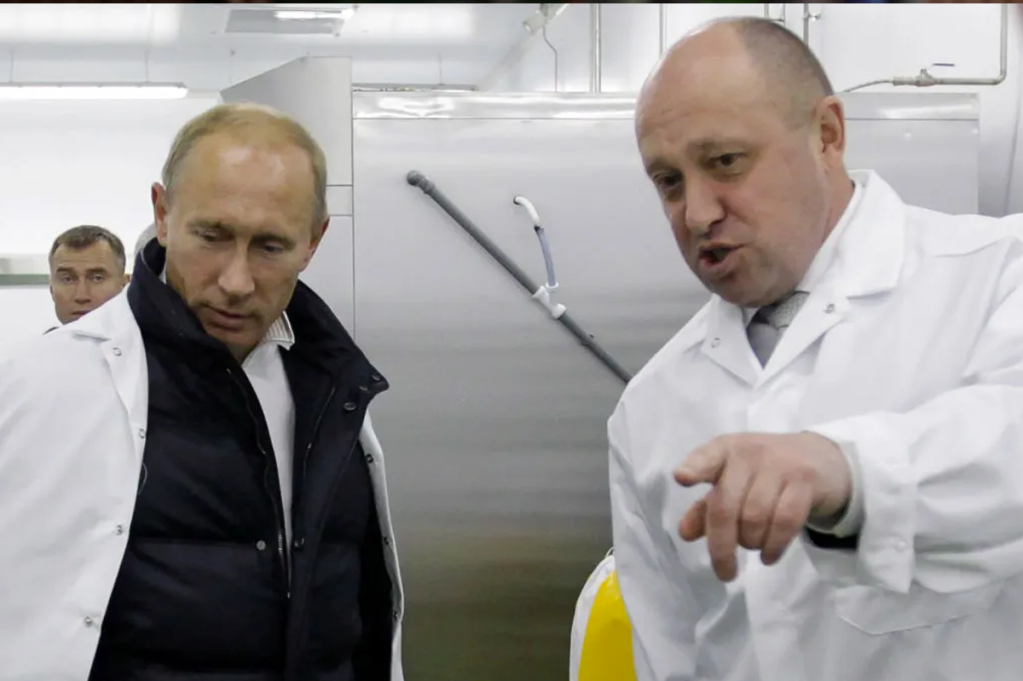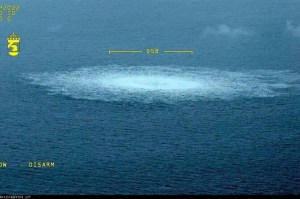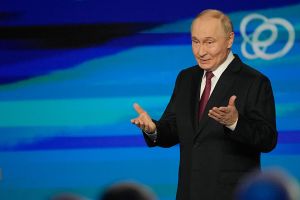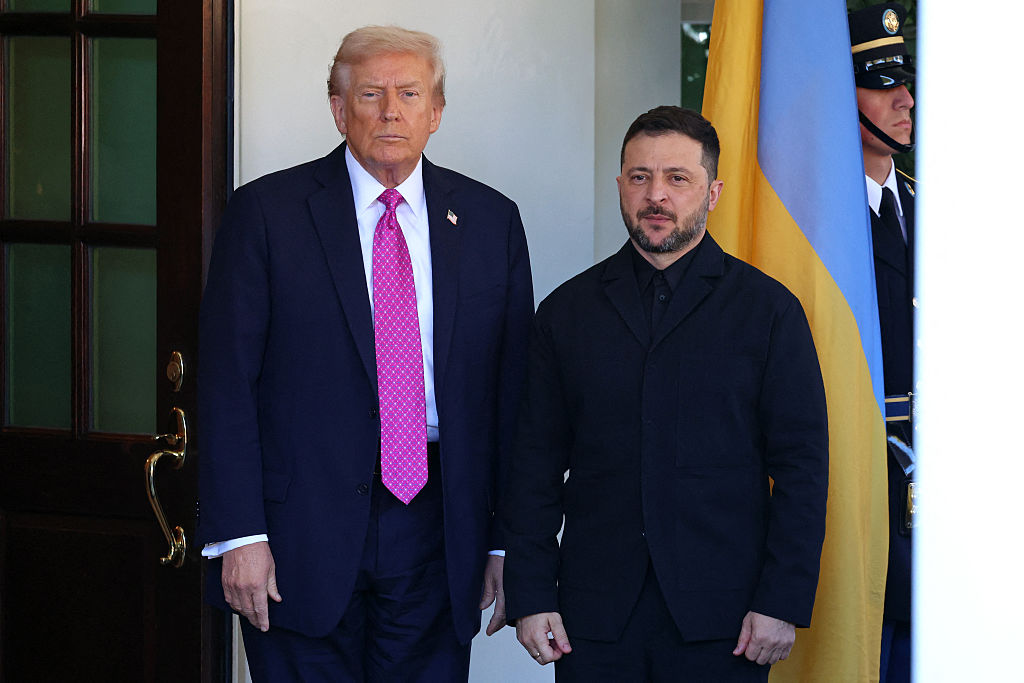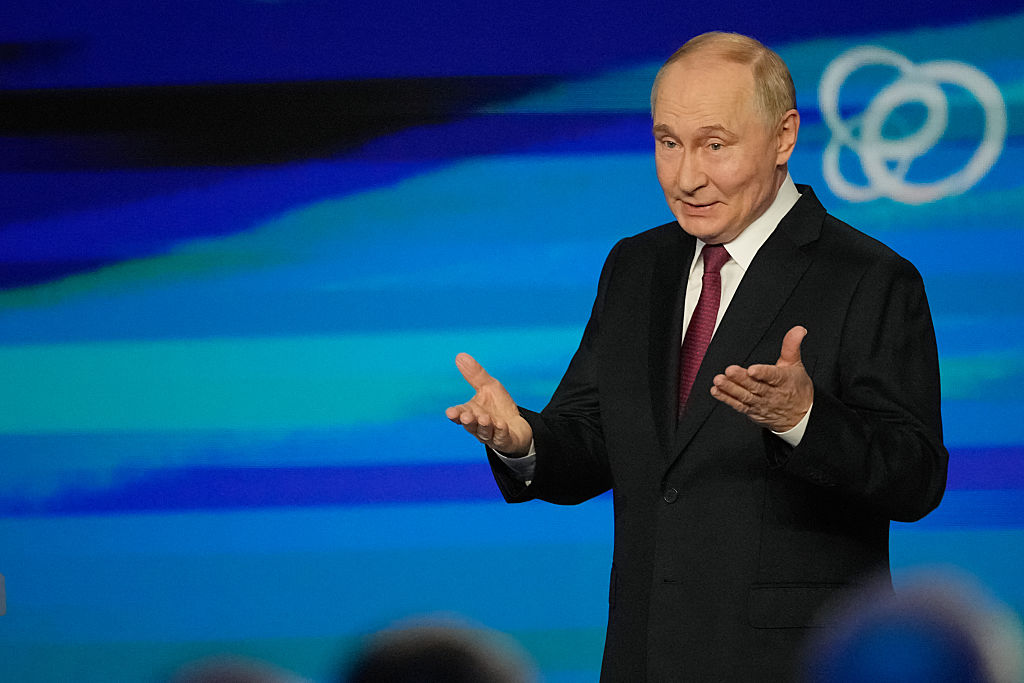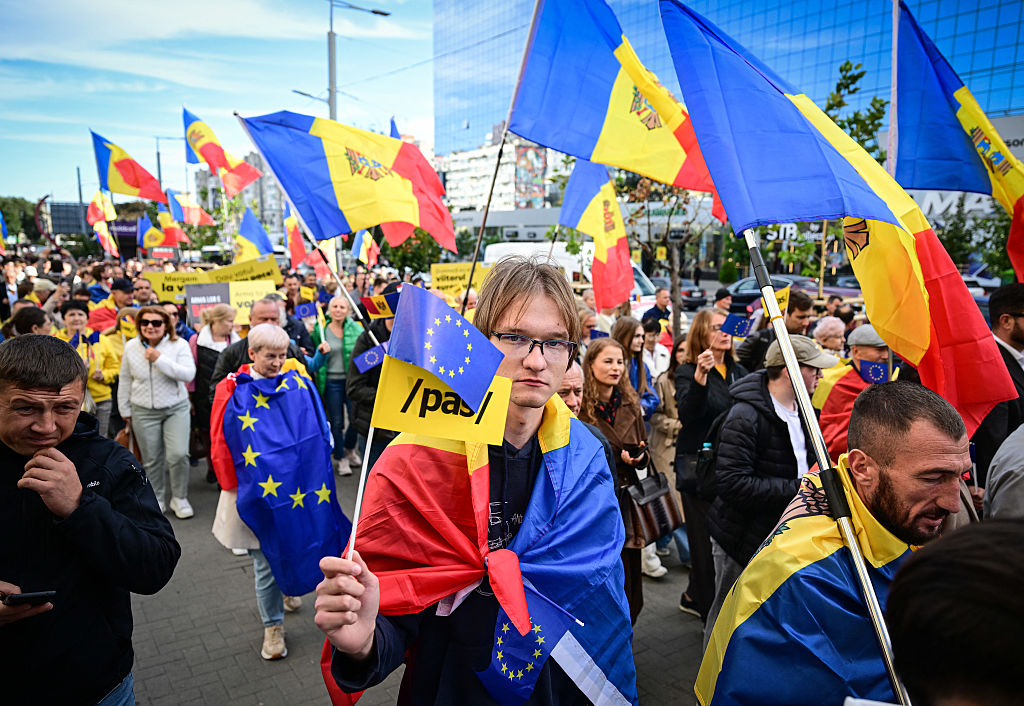Civil war has broken on Russia like a thunderstorm, replacing weeks of mounting political heat with a deluge of fire and fury. The sound of rifles and mortars echoed around Rostov-on-Don hours after mercenaries of the Wagner private military company took over the headquarters of the Russian Army’s southern command. Wagner troops were filmed placing anti-tank mines on intersections in downtown Rostov. In Voronezh, Russian army KA-52 attack helicopters rocketed a tank park, apparently to stop the armored vehicles falling into the hands of the rebels, as a burning oil refinery outside Rostov sent flames hundreds of feet into the air. A column of Wagner tanks on low-loaders was filmed heading up the M4 highway from Voronezh to Moscow, twenty-six miles to the north. Trucks loaded with sand were deployed on all the entrances to Moscow itself, ready to act as makeshift tank barriers in the event of an assault, as soldiers dug roadside defenses on the approaches to Moscow province.
The architect of this attempted military coup, billionaire chef-turned mercenary leader Yevgeny Prigozhin, called his armed advance on Moscow a “march for justice” — an apparent reference to Benito Mussolini’s 1922 March on Rome. Prigozhin has spent months berating Russia’s military leadership for their incompetence — and as The Spectator reported last week, those verbal attacks were “more than just fighting talk; it’s an open call for insurrection.” Now, in response to an alleged rocket attack by Russian forces on a Wagner base that killed scores of “musicians,” as the Wagner men are nicknamed, that insurrection is now a reality.
Prigozhin faced a stark choice: rebel or die. Wagner disengaged from its last major frontline fight in Bakhmut, Ukraine, in late May. Ten days ago, Vladimir Putin himself backed up an order from defense minister Sergei Shoigu to effectively disband Wagner by making all of Prigozhin’s 27,000 men sign contracts with the Russian Army. And with last week’s rocket attack, it became clear that the Russian high command actually would prefer Prigozhin and his men dead. “The trigger of the Civil War was pulled by Pypa [an offensive nickname for Putin],” claimed the Telegram channel AP Wagner, one of numerous channels associated with senior figures in Wagner. “Instead of sending one or two degenerates into retirement, [Putin] gave the order to neutralize the most combat-ready unit in Russia. The life of one or two traitors was placed above 25,000 heroes. Who is evil in this conflict is already obvious. Victory will be Wagner’s.”
The speed and effectiveness of Wagner’s takeover of Voronezh and Rostov — both cities of over a million inhabitants — appeared to have been long-planned. Indeed Wagner appears to have equipped itself with sophisticated anti-tank weaponry — reportedly including captured Javelin MANPADS supplied to the Ukrainian army — and anti-aircraft weapons with which the rebels have already downed several Russian attack helicopters and a reconnaissance plane. The Wagner column moving north towards Moscow includes a Pantsir S-1 mobile anti-missile and air-defense battery.
Putin is visibly furious — and is clearly taking the threat posed by Wagner very seriously. Usually so careful with his language that he never calls the invasion of Ukraine a “war,” Putin warned of the possibility of a “civil war” in an emergency broadcast to the nation on Saturday morning. “It’s an attempt to subvert us from inside… this is treason in the face of those who are fighting on the front,” Putin told the Russian public. “This is a stab in the back of our troops and the people of Russia.”
The key question is how far Prigozhin will get in his desperate rebellion. As with rebellions against the Russian state in 1917, 1825 and 1698, the key factor is whether ordinary troops join the mutineers. That begs two further paradoxical questions: why would ordinary regular Russian army soldiers and officers join Wagner in its death-match with the Kremlin? And conversely, why would ordinary Russian soldiers die fighting their own people — led by a man like Prigozhin whose charisma and straight-taking directness have made him a hero of ultranationalist Russians?
So far the evidence for where people’s sympathies lie is confused. Crowds of ordinary citizens have been filmed giving Wagner troops water and sweets on the streets of Rostov-on-Don. A small group of fighters from Storm-Z, a Russian Ministry of Defense unit consisting of released convicts, have released a video saying that they support Prigozhin’s campaign against the “rats in the rear” and are ready to join if he needs them. Policemen sent to block Russia’s main north-south M4 highway with a large number of sand-filled trucks before the crossing over the Oka river near the town of Lipitsy said they planned to retreat to the safety of the far side of the river once the roadblock was complete. “They say that those armed comrades [Wagner] don’t touch civilians,” says a uniformed cop. “But they’d mess up any siloviki [servicemen] they find.”
Prigozhin is a violent ultranationalist who has repeatedly called for Russian society to be fully mobilized in order to crush Ukraine
At the same time fist-fights have broken out in central Rostov, apparently between pro- and anti-war citizens. And, more menacingly, a vast column of Chechen troops loyal to Chechnya’s president Ramzan Kadyrov have moved into the outskirts of Rostov. In this Alien vs Predator fight, the Kremlin’s colonial troops in the form of the “Kadyrovtsy” will face off against a mercenary army of ex-prisoners recruited as expendable cannon fodder but who have proven to be among the toughest and most effective Russian forces of the war.
On paper, Prigozhin’s 27,000 desperados have little chance against the nearly 4.5 million strong security forces at Putin’s command. That’s a good thing. Prigozhin is a violent ultranationalist who has repeatedly called for Russian society to be fully mobilized in order to crush Ukraine. Prigozhin in the Kremlin would turn Russia into a fascist Sparta in control of the world’s largest nuclear arsenal.
But even if Putin succeeds in crushing Wagner — at the cost of street battles in two major Russian cities and a battle on the Moscow highway — his regime will emerge seriously weakened. No wonder my Ukrainian friends have been posting memes all day of Ray Liotta in Goodfellas laughing in hysterical glee.
This article was originally published on The Spectator’s UK website.



